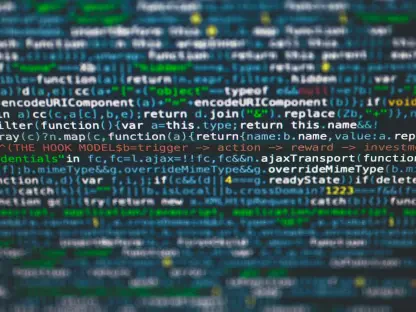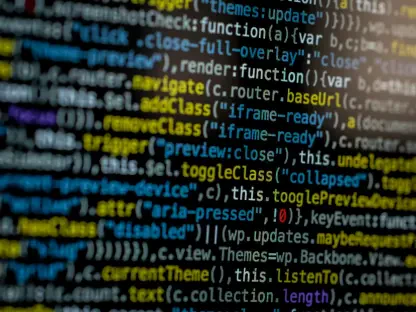The transformative potential of AI-augmented testing tools in software engineering cannot be overstated. As enterprises increasingly recognize the efficiency, accuracy, and comprehensive coverage offered by AI-driven testing, a significant shift is occurring in testing methodologies. Gartner’s forecast suggests that by 2027, 80% of enterprises will adopt these advanced tools, a steep rise from the current 15% in 2023. This trend heralds a new era for the software testing profession, emphasizing competencies in AI and machine learning (AI/ML) over traditional programming skills.The increasing reliance on AI in the software testing realm underscores not only a technological shift but also a fundamental transformation in skill requirements and work processes. This paradigm shift entails that testers will need to become proficient in AI and ML concepts, which includes understanding algorithmic models, data interpretation, and the integration of AI tools within existing frameworks. The elevation of AI tools from supplementary utilities to essential components of the software development life cycle (SDLC) marks a pivotal moment akin to the introduction of automation in the industrial sector during the 20th century. Furthermore, this comprehensive integration of AI-driven tools is not merely confined to larger tech conglomerates but also extends to mid-sized enterprises striving for competitive advantage through rapid iteration and quality enhancement.
Rapid Growth in Adoption Rates
The projected rise in AI-augmented testing tools’ adoption underscores their growing importance in the software industry. As organizations strive for faster release cycles and higher quality software, these tools are becoming indispensable. They offer unparalleled speed and precision, enabling teams to keep pace with increasing software production demands. The growing confidence in AI’s ability to manage complex testing scenarios efficiently highlights a broader acceptance of AI-driven methodologies and tools, reflecting their maturity and robustness in real-world applications.This increasing adoption rate also reflects broader technological trends. Enterprises are investing heavily in AI technologies, recognizing their potential to revolutionize various aspects of business operations. The push towards digital transformation and automation is driving the demand for AI-augmented tools, and software testing is no exception. The convergence of AI and software testing is not merely a trend but represents a strategic evolution as businesses reimagine traditional processes through a lens of innovation and efficiency. It’s evident that this growth trend will likely be paralleled by advances in other domains such as DevOps and continuous integration/continuous deployment (CI/CD) frameworks, thereby reinforcing the comprehensive role of AI within the entire SDLC.
Shifting Skill Requirements in Software Testing
The rise of AI-augmented testing tools is reshaping the skill requirements for software testers. Traditional programming skills, while still valuable, are taking a back seat to AI/ML competencies. Testers now need to understand machine learning algorithms, data analysis, and AI tool integration to effectively leverage these advanced technologies. This new skill set is not just an additive requirement but a transformative competency that is necessary to navigate the complexities and nuances of AI-tool interactions and configurations.This shift has significant implications for the workforce. Educational institutions and training programs must adapt to prepare the next generation of software testers. Current professionals in the field also need to upskill, acquiring knowledge in AI/ML to stay relevant and meet the evolving demands of the industry. The demand for these new skills has already started to generate dedicated courses, certification programs, and even specialized career tracks focusing exclusively on AI-driven quality assurance and testing methodologies. Employers are recognizing the value of these competencies and are increasingly seeking professionals who can merge core testing principles with advanced AI capabilities to optimize software quality and efficiency.
Balancing Human-AI Collaboration
Despite the growing role of AI in software testing, human expertise remains crucial. AI-augmented testing tools can handle routine tasks with impressive speed and accuracy, but they still require human oversight to guide, validate, and interpret results. The collaboration between human testers and AI tools ensures that testing processes are both efficient and reliable. Human testers bring the required contextual awareness and critical thinking needed to operate AI tools effectively and interpret their outcomes accurately.This hybrid approach leverages the strengths of both AI and human testers. AI can quickly identify patterns and anomalies that might be missed by humans, while human testers bring contextual understanding and judgment to the table. Together, they can achieve a level of precision and thoroughness that neither could accomplish alone. This collaborative dynamic is increasingly being defined not by the substitution of roles but by the augmentation of capabilities. The synergy between AI and human input forms the backbone of a more resilient and responsive testing framework that can adapt to an ever-evolving technological landscape.
Enhancing Efficiency and Quality
One of the most significant advantages of AI-augmented testing tools is their ability to enhance efficiency and quality. These tools can automate routine tasks such as test case generation and maintenance, freeing up human testers to focus on more complex and creative aspects of testing. This automation leads to faster testing cycles, enabling teams to release software more quickly. Automation at this scale not only curtails the workload of manual testers but also mitigates the risk of human errors that can arise from repetitive tasks, thereby enhancing overall test reliability and consistency.Furthermore, AI tools can analyze vast amounts of data to ensure comprehensive test coverage. They can identify potential defects early in the development process, reducing the risk of costly and time-consuming fixes later. By improving both speed and accuracy, AI-augmented testing tools significantly enhance overall software quality. AI-driven predictive analytics also contribute to proactive defect management by anticipating potential problem areas based on historical data and usage patterns. This foresight allows teams to address issues preemptively, further bolstering the software’s robustness and performance.
Diverse Applications in Software Testing
AI-augmented tools are already being used in various phases of software testing, each offering unique benefits. For instance, AI can streamline test case creation by analyzing requirements and generating relevant test cases automatically. This reduces the manual effort involved in test planning and ensures that all critical scenarios are covered. The ability of AI systems to ingest and process extensive datasets allows them to generate high-fidelity test cases that might be beyond the scope of manual test drivers.Optimization is another area where AI excels. Machine learning algorithms can analyze historical testing data to identify redundant or ineffective tests, helping to optimize the test suite and focus efforts on the most critical areas. Additionally, predictive capabilities enable AI to anticipate potential defects, allowing teams to address issues proactively before they impact the software. This predictive capability serves not only as a risk mitigation strategy but also as an enabler for continuous improvement and adaptive testing environments that can evolve alongside the software under development.
Addressing Challenges and Roadblocks
Despite their promise, AI-augmented testing tools come with challenges that must be addressed to realize their full potential. One major concern is the evolving nature of AI technologies. As AI systems continue to develop, keeping up with the latest advancements and integrating new tools into existing processes can be daunting. This rapid evolution necessitates a flexible and adaptable approach to tool integration and process management, ensuring that teams remain on the cutting edge while maintaining operational stability.Data security and compliance also pose significant challenges. Organizations must ensure that their AI tools are compliant with regulations like GDPR and that they handle sensitive data securely. This requires robust data governance frameworks and ongoing monitoring to mitigate risks. The sensitive nature of data used in training AI models means that additional precautions must be taken to anonymize and secure data both during and after the testing phases. Ensuring compliance while harnessing the full power of AI tools involves a careful balancing act that requires vigilance and proactive policy formulation.
Managing Algorithmic Bias
Another critical challenge in implementing AI-augmented testing tools is managing algorithmic bias. AI systems are only as good as the data they are trained on, and biased training data can lead to skewed or unreliable results. Addressing this issue requires diligent oversight during the AI training process and continuous evaluation to ensure fairness and accuracy. Algorithmic bias, if left unchecked, can perpetuate systemic issues and erode the reliability of test outcomes.Organizations must also consider the potential ethical implications of AI-driven testing. Transparent practices and accountability are essential to maintain trust in AI tools. By addressing algorithmic bias and implementing ethical guidelines, enterprises can ensure that their AI-augmented testing processes are both effective and responsible. Ethical considerations include not only the integrity of test results but also the broader impact of these technologies on the workforce, data privacy, and user experience.
Future Outlook and Industry Trends
The potential of AI-augmented testing tools in software engineering is profound. As enterprises realize the efficiency, precision, and extensive coverage offered by AI-driven testing, significant changes are occurring in testing methods. Gartner predicts that by 2027, 80% of enterprises will use these advanced tools, a substantial leap from 15% in 2023. This trend marks a new phase for the software testing field, highlighting AI and machine learning (AI/ML) skills over traditional programming abilities.The growing dependence on AI in software testing not only signals a technological transition but also fundamentally alters skill requirements and work processes. This shift requires testers to become adept in AI and ML, encompassing knowledge of algorithmic models, data interpretation, and the integration of AI tools into existing frameworks. The rise of AI tools from auxiliary utilities to essential elements of the software development life cycle (SDLC) is comparable to the advent of automation in the industrial sector in the 20th century. Moreover, this extensive incorporation of AI-driven tools is not limited to large tech companies but also includes mid-sized businesses aiming for a competitive edge through rapid iteration and quality improvement.









